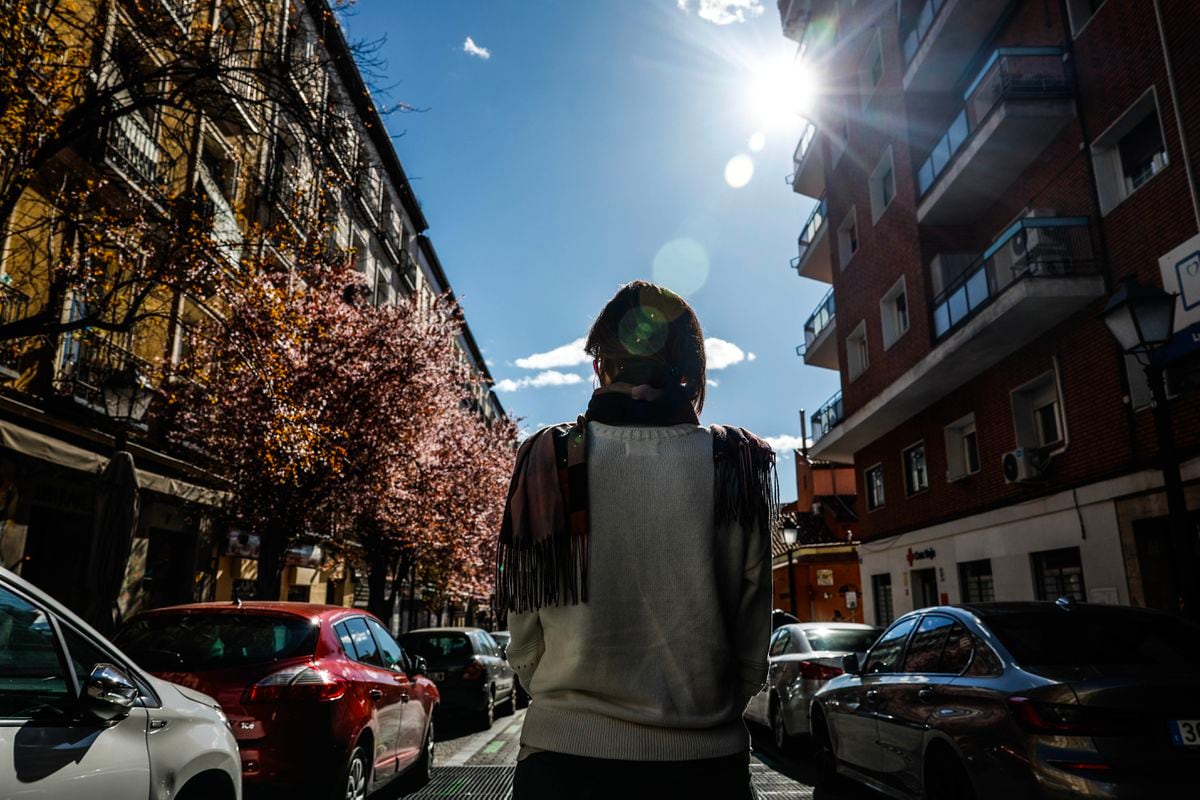Many say that she is an unconventional soprano, but no one disputes her solidity.
The fact is that Sondra Radvanovsky (Berwyn, Illinois, United States, 53 years old) has been going through the most glorious moments of her career in recent years.
She amazes and yields, she gets to the bottom and exhibits, on the one hand, her strength based on her experience and, on the other, that mystery of the inexplicable, but accurate, that the greats of opera have.
Her last appearances in Spain have been notorious.
The American singer has left no one indifferent: from her debut at the Liceu in 2018 with Jonas Kaufmann and the baritone from Malaga Carlos Álvarez to her
Tosca
at the Teatro Real, also with the Spaniard and several encores that she sang half shocked by its effect before the public.
Next Saturday the 23rd he returns to the country where, he says, he wants to live, although he has not yet decided where.
She will do it in Palma de Mallorca, within
the night of the senses
of the Cap Rocat festival.
An à la carte concert awaits her: her favorite arias, accompanied by Pablo Mielgo, musical director of the Orquestra de les Illes Balears.
But why now Radvanovsky wants to live in Spain?
He has no problem telling it by videoconference from New York.
You will see that the reasons are powerful.
“Since the pandemic hit, we have all changed.
Me too: I want to live from day to day.
My mother died in January, at the time my marriage fell apart and I got divorced after 22 years.
I need a change,” he states.
These two reasons also weighed on the night of July 4 last, when the Real public cheered her to sing the encore of
Vissi d'arte,
in
Tosca
(Puccini)
.
“He was going through that tough time.
My mother at that time was already very ill and my marriage was falling apart.
My emotional state was mixed with other factors.
I had put all my energy into my singing, it was the only thing in my life that hadn't changed, so I put all my strength into it.
In the last year, I actually think I've grown in the way I bring my emotions into it.
In addition, after the pandemic, the public was hungry to feel the emotion of live music.
All of this led to a kind of perfect storm.”
The soprano in 'Tosca', at the Castell de Peralada Festival (Girona) in 2021. Miquel Gonzalez
And it exploded, without him realizing it.
“I never planned it and we should not expect something like this at any time.
But emotions are unleashed and that's it.
You always find someone who criticizes him because he breaks the rhythm of the performance, but what are you going to do?
If you don't decide to repeat the aria, the audience would still be clapping."
There is more… In his trajectory both in Europe and in North America —either in the United States or in Canada, where he now lives—, Radvanovsky observes many differences.
“As I say, the pandemic has changed us all radically.
And to the world of opera, forever.
Classical music is deeply rooted in Europe, but North America is the land of pop, country and jazz.
Classical music is not taught here, it is not part of nature and if you do not feed it or water it, it dies”, believes the soprano.
The roots also pull: on the father's side she is Czech, something that has led her to dominate roles such as
Rusalka,
by Dvorák.
His mother, on the other hand, came from Denmark.
She was born outside of Chicago and raised in Indiana.
But she carries a tragic past of flight and silence.
“My grandmother never talked about her life in the former Czechoslovakia.
But shortly before she died, she told my father that she had been raped by some German soldiers and that perhaps he… ”.
She prefers to look ahead.
In the continent where she wants to move, she observes a collective commitment and a firm commitment to young people.
“The State takes care of it, the public attends.
In New York, lately at the Metropolitan, which is the largest theater in the world, it is half empty and the public that attends is much older.
Here, this dies.
If I go to Europe, young people wait for me at the door.
For me that makes the difference.
They have managed to maintain that bond of opera with young people while America has lost it: it has not been able to find this new generation and seduce them to go to the theaters”.
The worst thing is that, according to her, the potential new audiences lose interest at the speed of light and the managers, according to her, are not able to stop the bleeding.
“I have read surveys in the sad newspapers about it: some indicate that 27% of the young public say they do not want to return to a live classical music show”.
Sondra Radvanovsky believes, among other reasons, that this retracement is due to not being able to break perverse dynamics.
“The opera houses in the United States do not know how to represent the societies of 2022. Diversity does not exist, different skin colors do not abound, you do not find representatives of the LGTBI collective.
The opera continues to be a platform of white and male dominance: there are no women stage directors or musical directors, I think that Europe is more aware of this and takes advantage of it.
On a stage you want to see a part of social reality reflected, here you simply can't find it”.
Besides, it is convenient to vindicate certain concepts with nobility.
Like Divism.
“In a sense, of course.
In seeking the iconic, because divisiveness is a magnet.
The term is changing.
We must stay with the positive.
We don't want the capricious latecomer, but we do want someone who is generous with his time and his art.
The advantage is that we live in a time that tends to the homogeneous, to dress as standard, to the generic.
Divismo represents the opposite, a quest to be unique, to march to the beat of our own drum without having to submit to certain rules.
Take the lead, mark your own path.
That's why they attract and we look at them”.
But divism costs.
“In this career, singing is easy.
What is least required of you.
This life is not normal.
You can't easily maintain a relationship, you travel, you study... You also owe it to your audience.
If you have a queue, you attend to each and every one of those who are waiting for you until the last one leaves because if you can reach them in some way with a kind gesture, they will remember it for the rest of their lives.
We are responsible for that and I feel it on my shoulders.
It is up to us to transfer the legacy of our art form to the next generations and that is a great burden, but together we must achieve it.
If we don't, it will go away."
50% off
Exclusive content for subscribers
read without limits
subscribe
I'm already a subscriber


/cloudfront-eu-central-1.images.arcpublishing.com/prisa/WNOFFXCBQZAWPCDSVKRQCHO2CQ.jpg)






/cloudfront-eu-central-1.images.arcpublishing.com/prisa/LP3J2SUS4JFCFPGRVUQ2GCCWLI.jpg)





